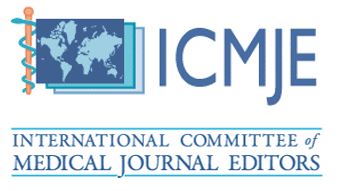Next-Generation Drug Delivery: Smart Nanomaterials for Precision Healthcare(focusing oral cancer)
Keywords:
Smart materials, oral cancer, nanomaterials, targeted drug delivery, photothermal therapy, precision medicineAbstract
The convergence of artificial intelligence and nanotechnology has revolutionized the development of precision therapeutics for oral squamous cell carcinoma (OSCC), addressing critical challenges in drug delivery, tumor ablation, and early detection. This review systematically examines how AI-driven approaches—including machine learning (ML), generative adversarial networks (GANs), and reinforcement learning—optimize nanomaterial design for OSCC applications. ML algorithms predict critical nanocarrier properties (size, shape, surface charge) to enhance tumor targeting, while GANs explore novel nanostructures with stimuli-responsive drug release tailored to the acidic OSCC microenvironment. Reinforcement learning and genetic algorithms further refine surface functionalization and release kinetics, achieving unprecedented tumor-to-normal tissue ratios (18:1) and sustained therapeutic delivery. Clinically, AI-designed nanotherapeutics demonstrate remarkable advances: (1) polymeric nanoparticles with optimized mucoadhesion for localized delivery, (2) photothermal agents with 85% energy conversion efficiency for tumor ablation, and (3) nanosensors detecting salivary biomarkers at 0.1 pg/mL for early diagnosis. Despite these breakthroughs, challenges persist in manufacturing scalability and regulatory adaptation of AI-generated designs. Future directions highlight closed-loop systems integrating real-time patient data and multi-objective optimization for personalized nanomedicine. By bridging computational innovation with biological validation, AI-enabled nanomaterial design promises to transform OSCC management, offering targeted, adaptive, and minimally invasive therapeutic strategies.
Downloads
References
1. Ghahramani Y, Mokhberi M, Mousavi SM, Hashemi SA, Fallahi Nezhad F, Chiang W-H, et al. Synergistically Enhancing the Therapeutic Effect on Cancer, via Asymmetric Bioinspired Materials. Molecules. 2022;27(23):8543.
2. Ghahramani Y, Yaghoobi F, Motamedi R, Jamshidzadeh A, Abbaszadegan A. Effect of endodontic irrigants and medicaments mixed with silver nanoparticles against biofilm formation of enterococcus faecalis. Iranian Endodontic Journal. 2018;13(4):559.
3. Abbaszadegan A, Ghahramani Y, Farshad M, Sedigh-Shams M, Gholami A, Jamshidzadeh A. In vitro evaluation of dynamic viscosity, surface tension and dentin wettability of silver nanoparticles as an irrigation solution. Iranian Endodontic Journal. 2019;14(1):23.
4. Nabavizadeh MR, Moazzami F, Gholami A, Mehrabi V, Ghahramani Y. Cytotoxic Effect of Nano Fast Cement and ProRoot Mineral Trioxide Aggregate on L-929 Fibroblast Cells: an in vitro Study. J Dent (Shiraz). 2022;23(1):13-9. Epub 2022/03/17. doi: 10.30476/dentjods.2021.87208.1239. PubMed PMID: 35291684; PubMed Central PMCID: PMC8918640.
5. Mousavi SM, Hashemi SA, Fallahi Nezhad F, Binazadeh M, Dehdashtijahromi M, Omidifar N, et al. Innovative metal-organic frameworks for targeted oral cancer therapy: A review. Materials. 2023;16(13):4685.
6. Asadi A, Rezaei M, Mohammadi E, Khaksar E, Khaksar E, Abbasi F, et al. Emerging Trends in Natural Polymers for Dental Regeneration.
7. Ghahramani Y, Javanmardi N. Graphene quantum dots and their applications via stem cells: A mini-review. Adv Appl NanoBio-Technol. 2021;2:54-6.
8. Akhtar MJ, Ahamed M, Alhadlaq HA, Alrokayan SA, Kumar S. Targeted anticancer therapy: overexpressed receptors and nanotechnology. Clinica chimica acta. 2014;436:78-92.
9. Ahmad A, Khan F, Mishra RK, Khan R. Precision cancer nanotherapy: evolving role of multifunctional nanoparticles for cancer active targeting. Journal of medicinal chemistry. 2019;62(23):10475-96.
10. Wilson B, Geetha KM. Lipid nanoparticles in the development of mRNA vaccines for COVID-19. Journal of Drug Delivery Science and Technology. 2022;74:103553.
11. Leung MK, Delong A, Alipanahi B, Frey BJ. Machine learning in genomic medicine: a review of computational problems and data sets. Proceedings of the IEEE. 2015;104(1):176-97.
12. Vadapalli S, Abdelhalim H, Zeeshan S, Ahmed Z. Artificial intelligence and machine learning approaches using gene expression and variant data for personalized medicine. Briefings in bioinformatics. 2022;23(5):bbac191.
13. Zitnik M, Nguyen F, Wang B, Leskovec J, Goldenberg A, Hoffman MM. Machine learning for integrating data in biology and medicine: Principles, practice, and opportunities. Information Fusion. 2019;50:71-91.
14. Chebanov DK, Misyurin VA, Shubina IZ. An algorithm for drug discovery based on deep learning with an example of developing a drug for the treatment of lung cancer. Frontiers in Bioinformatics. 2023;3:1225149.
15. Moeini A, Torabi S. The Role of Artificial Intelligence in Dental Diagnosis and Treatment Planning. Journal of Oral and Dental Health Nexus. 2025;2(1):14-26.
16. shahed Shoarishoar S, KaboodMehri R, Fakor F, Sorouri ZR, Mansour-Ghanaei M, Darkhaneh RF, et al. Assessment of decreased ovarian reserve and systemic inflammatory markers. Cellular and Molecular Biology. 2024;70(11):144-9.
17. Roy R, Marakkar S, Vayalil MP, Shahanaz A, Anil AP, Kunnathpeedikayil S, et al. Drug-food interactions in the era of molecular big data, machine intelligence, and personalized health. Recent Advances in Food Nutrition & Agriculture. 2022;13(1):27-50.
18. Gupta R, Srivastava D, Sahu M, Tiwari S, Ambasta RK, Kumar P. Artificial intelligence to deep learning: machine intelligence approach for drug discovery. Molecular diversity. 2021;25:1315-60.
19. Wasilewski T, Kamysz W, Gębicki J. AI-assisted detection of biomarkers by sensors and biosensors for early diagnosis and monitoring. Biosensors. 2024;14(7):356.
20. Dave A. Artificial Intelligence Driven Nanobiosensors: Virus Detection and Precision Medicine. Nanomaterials and Point of Care Technologies: CRC Press. p. 214-39.
21. Hassan SA-DH, Almaliki MNS, Hussein ZA, Albehadili HM, Rabeea Banoon S, Abboodi A, et al. Development of nanotechnology by artificial intelligence: a comprehensive review. Journal of Nanostructures. 2023;13(4):915-32.
22. Mazumdar H, Khondakar KR, Das S, Halder A, Kaushik A. Artificial intelligence for personalized nanomedicine; from material selection to patient outcomes. Expert Opinion on Drug Delivery. 2025;22(1):85-108.
23. Egwuatu OP, Ori MO, Samuel HS, Ekpan F. AI-enabled Diagnostics and Monitoring in Nanomedicine. Eurasian Journal of Science and Technology. 2024;4(3):208-29.
24. Sanaee MR, Manesh HD, Janghorban K, Sanaee R, Kooshesh L, Ghahramani Y, et al. The influence of particle size and multi-walled carbon nanotube on physical properties of mineral trioxide aggregate. Materials Research Express. 2019;6(6):065413.
25. Archie S. Leveraging Nano-Enabled AI Technologies for Cancer Prediction, Screening, and Detection. International Journal of Artificial Intelligence and Cybersecurity. 2025;1(2).
26. Padhiary M, Roy D, Dey P. Mapping the Landscape of Biogenic Nanoparticles in Bioinformatics and Nanobiotechnology: AI-Driven Insights. Synthesizing and Characterizing Plant-Mediated Biocompatible Metal Nanoparticles: IGI Global; 2025. p. 337-76.
27. Sonu, Chaudhary V. A paradigm of internet-of-nano-things inspired intelligent plant pathogen-diagnostic biosensors. ECS Sensors Plus. 2022;1(3):031401.
28. Ibrahim HK. From Nanotech to AI: The Cutting-Edge Technologies Shaping the Future of Medicine. African Journal of Advanced Pure and Applied Sciences (AJAPAS). 2024:410-27.
29. Subbhuraam V. FemTech solutions for advancing women’s health. Predictive Analytics in Healthcare, Volume 1: Transforming the future of medicine: IOP Publishing Bristol, UK; 2021. p. 3-1-3-25.
30. Kashyap B, Kumar R. Sensing methodologies in agriculture for monitoring biotic stress in plants due to pathogens and pests. Inventions. 2021;6(2):29.
31. Moazzami F, Jahandizi NG, Shokouhi MM, Ghahramani Y. Sealing Ability of Nano-fast Cement vs. Mineral Trioxide Aggregate as Retrograde Apical Plugs: An In-vitro Microleakage Study. Iranian Endodontic Journal. 2023;18(4):206.
32. Bagherpour R, Bagherpour G, Mohammadi P. Application of artificial intelligence in tissue engineering. Tissue Engineering Part B: Reviews. 2025;31(1):31-43.
33. Eskandari F, Ghahramani Y, Abbaszadegan A, Gholami A. The antimicrobial efficacy of nanographene oxide and double antibiotic paste per se and in combination: part II. BMC Oral Health. 2023;23(1):253.
34. Gholap AD, Uddin MJ, Faiyazuddin M, Omri A, Gowri S, Khalid M. Advances in artificial intelligence in drug delivery and development: A comprehensive review. Computers in Biology and Medicine. 2024:108702.
35. Ulas C, Das D, Thrippleton MJ, Valdés Hernández MdC, Armitage PA, Makin SD, et al. Convolutional neural networks for direct inference of pharmacokinetic parameters: application to stroke dynamic contrast-enhanced MRI. Frontiers in neurology. 2019;9:1147.
36. Mousavi SM, Nezhad FF, Ghahramani Y, Binazadeh M, Javidi Z, Azhdari R, et al. Recent Advances in Bioactive Carbon Nanotubes Based on Polymer Composites for Biosensor Applications. Chemistry & Biodiversity. 2024;21(7):e202301288.
37. Tavangar MS, Shafiei F, Eslami Pirharati S, Bakhshandeh M, Ghahramani Y. Effect of crosslinking/antioxidant agents as final irrigant on the fracture resistance of endodontically treated root after radiotherapy. Plos one. 2024;19(10):e0311132.
38. Nosrati H, Nosrati M. Artificial intelligence in regenerative medicine: applications and implications. Biomimetics. 2023;8(5):442.
39. Vora LK, Gholap AD, Jetha K, Thakur RRS, Solanki HK, Chavda VP. Artificial intelligence in pharmaceutical technology and drug delivery design. Pharmaceutics. 2023;15(7):1916.
40. Suwardi A, Wang F, Xue K, Han MY, Teo P, Wang P, et al. Machine learning‐driven biomaterials evolution. Advanced Materials. 2022;34(1):2102703.
41. Ghahramani Y, Ghaffaripour D, Mohammadi N. In Vitro Evaluation of the Fracture Resistance of Biodentine Pulpotomized Primary Molars Restored with Different Dental Materials. World. 2019;10(4):301-5.
42. Ghahramani Y, Mokhberi M, Mousavi SM, Hashemi SA, Lai CW. Electrochemical biosensors for determination of tumor biomarkers. Semiconducting Polymer Materials for Biosensing Applications: Elsevier; 2024. p. 351-77.
43. Ghahramani Y, Agharokh M. Advances in Applied Nanobio-Technologies Based Materials as Emerging Trends for Dental Tissue Engineering: A mini-review.
44. Bera K, Schalper KA, Rimm DL, Velcheti V, Madabhushi A. Artificial intelligence in digital pathology—new tools for diagnosis and precision oncology. Nature reviews Clinical oncology. 2019;16(11):703-15.
45. Bayhaqi YA, Hamidi A, Navarini AA, Cattin PC, Canbaz F, Zam A. Real-time closed-loop tissue-specific laser osteotomy using deep-learning-assisted optical coherence tomography. Biomedical Optics Express. 2023;14(6):2986-3002.
46. Klauschen F, Dippel J, Keyl P, Jurmeister P, Bockmayr M, Mock A, et al. Toward explainable artificial intelligence for precision pathology. Annual Review of Pathology: Mechanisms of Disease. 2024;19(1):541-70.
47. Srinivasarao M, Low PS. Ligand-targeted drug delivery. Chemical reviews. 2017;117(19):12133-64.
48. Valencia PM, Hanewich-Hollatz MH, Gao W, Karim F, Langer R, Karnik R, et al. Effects of ligands with different water solubilities on self-assembly and properties of targeted nanoparticles. Biomaterials. 2011;32(26):6226-33.
49. Anarjan FS. Active targeting drug delivery nanocarriers: Ligands. Nano-Structures & Nano-Objects. 2019;19:100370.
50. Stella B, Arpicco S, Peracchia MT, Desmaële D, Hoebeke J, Renoir M, et al. Design of folic acid‐conjugated nanoparticles for drug targeting. Journal of pharmaceutical sciences. 2000;89(11):1452-64.
51. Varshosaz J, Moazen E, Fathi M. Preparation of carvedilol nanoparticles by emulsification method and optimization of drug release: surface response design versus genetic algorithm. Journal of dispersion science and technology. 2012;33(10):1480-91.
52. Elliott L, Ingham D, Kyne A, Mera N, Pourkashanian M, Wilson C. Genetic algorithms for optimisation of chemical kinetics reaction mechanisms. Progress in Energy and Combustion Science. 2004;30(3):297-328.
53. Acosta‐Angulo B, Diaz‐Angulo J, Lara‐Ramos J, Torres‐Palma R, Martínez‐Pachón D, Moncayo‐Lasso A, et al. Analysis of the applications of particle swarm optimization and genetic algorithms on reaction kinetics: a prospective study for advanced oxidation processes. ChemElectroChem. 2022;9(13):e202200229.
54. Ghaedi A, Ghaedi M, Pouranfard A, Ansari A, Avazzadeh Z, Vafaei A, et al. Adsorption of Triamterene on multi-walled and single-walled carbon nanotubes: Artificial neural network modeling and genetic algorithm optimization. Journal of Molecular Liquids. 2016;216:654-65.
55. Zaki MR, Varshosaz J, Fathi M. Preparation of agar nanospheres: Comparison of response surface and artificial neural network modeling by a genetic algorithm approach. Carbohydrate polymers. 2015;122:314-20.
56. Polifke W, Geng W, Döbbeling K. Optimization of rate coefficients for simplified reaction mechanisms with genetic algorithms. Combustion and Flame. 1998;113(1-2):119-34.
57. Razzaq S, Syed MA, Irfan M, Khan I, Sarfraz RM, Shakir R, et al. Optimization of metronidazole SR buccal tablet for gingivitis using genetic algorithm. Pakistan Journal of Pharmaceutical Sciences. 2021;34(6).
58. Peppas NA, Bures CD. Glucose-responsive hydrogels. Encyclopedia of biomaterials and biomedical engineering. 2006;10.
59. Ghahramani Y, Shafiei F, Jowkar Z, Kazemian S. The effects of various restorative techniques on the fracture resistance of pulpotomized permanent premolars. International Journal of Dentistry. 2021;2021(1):5590911.
60. Adir O, Poley M, Chen G, Froim S, Krinsky N, Shklover J, et al. Integrating Artificial Intelligence and Nanotechnology for Precision Cancer Medicine. Adv Mater. 2020;32(13):e1901989. Epub 2019/07/10. doi: 10.1002/adma.201901989. PubMed PMID: 31286573; PubMed Central PMCID: PMC7124889.
61. Tan P, Chen X, Zhang H, Wei Q, Luo K. Artificial intelligence aids in development of nanomedicines for cancer management. Semin Cancer Biol. 2023;89:61-75. Epub 2023/01/23. doi: 10.1016/j.semcancer.2023.01.005. PubMed PMID: 36682438.
62. Cheraghiyan M. Nanotechnology in Dentistry: Potential Applications and Future Perspectives. Journal of Oral and Dental Health Nexus. 2025;2(1).
63. Kateb B, Chiu K, Black KL, Yamamoto V, Khalsa B, Ljubimova JY, et al. Nanoplatforms for constructing new approaches to cancer treatment, imaging, and drug delivery: what should be the policy? Neuroimage. 2011;54 Suppl 1(Suppl 1):S106-24. Epub 2010/02/13. doi: 10.1016/j.neuroimage.2010.01.105. PubMed PMID: 20149882; PubMed Central PMCID: PMC3524337.
64. Lin PC, Tsai YS, Yeh YM, Shen MR. Cutting-Edge AI Technologies Meet Precision Medicine to Improve Cancer Care. Biomolecules. 2022;12(8). Epub 2022/08/27. doi: 10.3390/biom12081133. PubMed PMID: 36009026; PubMed Central PMCID: PMC9405970.
65. Cheng L, Wang X, Gong F, Liu T, Liu Z. 2D Nanomaterials for Cancer Theranostic Applications. Adv Mater. 2020;32(13):e1902333. Epub 2019/07/30. doi: 10.1002/adma.201902333. PubMed PMID: 31353752.
66. Eltaib L. Polymeric Nanoparticles in Targeted Drug Delivery: Unveiling the Impact of Polymer Characterization and Fabrication. Polymers. 2025;17(7):833.
67. Hajimolaali M, Dorkoosh FA, Antimisiaris SG. Review of recent preclinical and clinical research on ligand-targeted liposomes as delivery systems in triple negative breast cancer therapy. Journal of Liposome Research. 2024;34(4):671-96.
68. Alshawwa SZ, Kassem AA, Farid RM, Mostafa SK, Labib GS. Nanocarrier drug delivery systems: characterization, limitations, future perspectives and implementation of artificial intelligence. Pharmaceutics. 2022;14(4):883.
69. Murugan C, Sharma V, Murugan RK, Malaimegu G, Sundaramurthy A. Two-dimensional cancer theranostic nanomaterials: Synthesis, surface functionalization and applications in photothermal therapy. J Control Release. 2019;299:1-20. Epub 2019/02/17. doi: 10.1016/j.jconrel.2019.02.015. PubMed PMID: 30771414.
70. Melancon MP, Zhou M, Li C. Cancer theranostics with near-infrared light-activatable multimodal nanoparticles. Acc Chem Res. 2011;44(10):947-56. Epub 2011/08/19. doi: 10.1021/ar200022e. PubMed PMID: 21848277; PubMed Central PMCID: PMC3196765.
71. Zhongguan H, Qiang Z, Sen L, Zhang G, Nadeem A, Ge Y. Cost-effective one-spot hydrothermal synthesis of graphene oxide nanoparticles for wastewater remediation: AI-enhanced approach for transition metal oxides. Chemosphere. 2023;337:139064. Epub 2023/06/16. doi: 10.1016/j.chemosphere.2023.139064. PubMed PMID: 37321457.
72. Singh S, Melnik R. Thermal ablation of biological tissues in disease treatment: A review of computational models and future directions. Electromagn Biol Med. 2020;39(2):49-88. Epub 2020/04/03. doi: 10.1080/15368378.2020.1741383. PubMed PMID: 32233691.
73. Badir A, Refki S, Sekkat Z. Utilizing gold nanoparticles in plasmonic photothermal therapy for cancer treatment. Heliyon. 2025;11(4):e42738. Epub 2025/03/14. doi: 10.1016/j.heliyon.2025.e42738. PubMed PMID: 40084020; PubMed Central PMCID: PMC11904586.
74. Ahmad IZ, Kuddus M, Tabassum H, Ahmad A, Mabood A. Advancements in Applications of Surface Modified Nanomaterials for Cancer Theranostics. Curr Drug Metab. 2017;18(11):983-99. Epub 2017/10/04. doi: 10.2174/1389200218666171002122039. PubMed PMID: 28969548.
75. Tan YY, Yap PK, Xin Lim GL, Mehta M, Chan Y, Ng SW, et al. Perspectives and advancements in the design of nanomaterials for targeted cancer theranostics. Chem Biol Interact. 2020;329:109221. Epub 2020/08/10. doi: 10.1016/j.cbi.2020.109221. PubMed PMID: 32768398.
76. Ghahramani Y, Tabibi SS, Khan MMR, Asadi A, Mohammadi E, Khaksar E, et al. Recent advances in bioactive materials: Future perspectives and opportunities in oral cancer biosensing. Talanta. 2025;286:127494.
77. Chugh V, Basu A, Kaushik A, Bhansali S, Basu AK. Employing nano-enabled artificial intelligence (AI)-based smart technologies for prediction, screening, and detection of cancer. Nanoscale. 2024;16(11):5458-86.
78. Xie J, Liu G, Eden HS, Ai H, Chen X. Surface-engineered magnetic nanoparticle platforms for cancer imaging and therapy. Accounts of chemical research. 2011;44(10):883-92.
79. Bagheriye L, Kwisthout J. Advancements in Real-Time Oncology Diagnosis: Harnessing AI and Image Fusion Techniques. arXiv preprint arXiv:250311332. 2025.
80. Conforti PM, Lazzini G, Russo P, D’Acunto M. Raman spectroscopy and AI applications in cancer grading. An overview. IEEE Access. 2024.
81. A Asadi MR, Y Ghahramani. recent advances in bioactive materials for diagnosis and treatment of oral cancer. advances in applied nano biotechnology. 2023;4(1):21_35.
82. Manzari MT, Shamay Y, Kiguchi H, Rosen N, Scaltriti M, Heller DA. Targeted drug delivery strategies for precision medicines. Nature Reviews Materials. 2021;6(4):351-70.
83. Stafford RJ, Fuentes D, Elliott AA, Weinberg JS, Ahrar K. Laser-induced thermal therapy for tumor ablation. Critical Reviews™ in Biomedical Engineering. 2010;38(1).
84. Salvati E, Stellacci F, Krol S. Nanosensors for early cancer detection and for therapeutic drug monitoring. Nanomedicine. 2015;10(23):3495-512.
85. Parisi OI, Scrivano L, Sinicropi MS, Picci N, Puoci F. Engineered Polymer-Based Nanomaterials for Diagnostic, Therapeutic and Theranostic Applications. Mini Rev Med Chem. 2016;16(9):754-61. Epub 2015/07/15. doi: 10.2174/1389557515666150709112122. PubMed PMID: 26156541.
86. Edwards K, Edgar T, Manousiouthakis V. Kinetic model reduction using genetic algorithms. Computers & chemical engineering. 1998;22(1-2):239-46.
87. Ghahramani Y, Saliminasab M. Nanotechnology applications in the diagnosis and treatment of oral squamous cell carcinoma.
88. Abbaszadegan A, Ghahramani Y, Gholami A, Hemmateenejad B, Dorostkar S, Nabavizadeh M, et al. Research Article The Effect of Charge at the Surface of Silver Nanoparticles on Antimicrobial Activity against Gram-Positive and Gram-Negative Bacteria: A Preliminary Study. 2015.
89. Adabbo G, Andreozzi A, Iasiello M, Napoli G, Vanoli G. A multi-objective optimization framework through genetic algorithm for hyperthermia-mediated drug delivery. Computers in Biology and Medicine. 2025;189:109895.
90. Krieger Filho G, Costa F, Maria GT, Bufacchi P, Trubachev S, Shundrina I, et al. Kinetic parameters and heat of reaction for forest fuels based on genetic algorithm optimization. Thermochimica Acta. 2022;713:179228.
91. Jeong J-O, Kim M, Kim S, Lee KK, Choi H. Advanced Hydrogel Systems for Local Anesthetic Delivery: Toward Prolonged and Targeted Pain Relief. Gels. 2025;11(2):131.
92. Junnuthula V, Kolimi P, Nyavanandi D, Sampathi S, Vora LK, Dyawanapelly S. Polymeric micelles for breast cancer therapy: recent updates, clinical translation and regulatory considerations. Pharmaceutics. 2022;14(9):1860.
93. Hashemi A, Ezati M, Nasr MP, Zumberg I, Provaznik V. Extracellular vesicles and hydrogels: an innovative approach to tissue regeneration. ACS omega. 2024;9(6):6184-218.
94. Cheong KY, Fraga MA, Sonar P, Pessoa R, Casanova-Moreno J. Semiconducting Polymer Materials for Biosensing Applications: Elsevier; 2024.
95. Ali MR, Nipu SMA, Khan SA. A decision support system for classifying supplier selection criteria using machine learning and random forest approach. Decision Analytics Journal. 2023;7:100238.
96. Sharma PR. Functionalized celluloses and their nanoparticles: synthesis, properties and applications. 2014.
97. Sunshine JC, Peng DY, Green JJ. Uptake and transfection with polymeric nanoparticles are dependent on polymer end-group structure, but largely independent of nanoparticle physical and chemical properties. Molecular pharmaceutics. 2012;9(11):3375-83.







